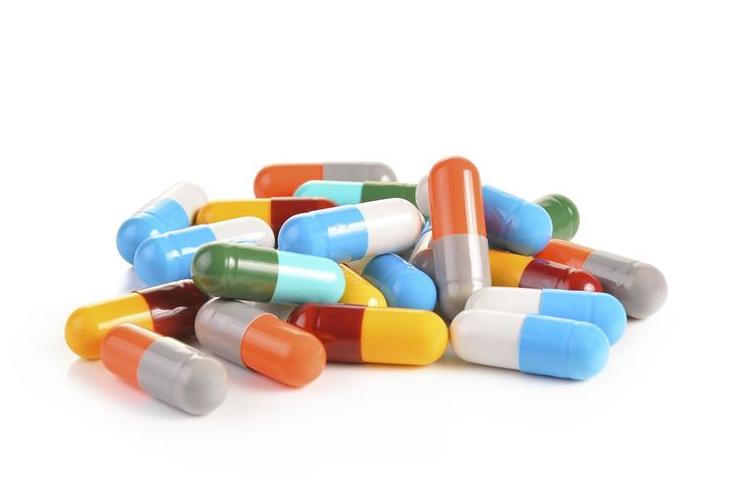Why Am I Always Bloated? Probiotics may be the Answer
Abdominal bloating is accompanied by a distended or swollen belly. It’s a fairly common condition for Americans, however increasingly probiotics are shown to be playing a part. Moreover, the condition can be very uncomfortable and may accompany stomach pains.
Sometimes bloating may be accompanied by gas, burping, feeling of fullness, and abdominal discomfort. However, once you identify the cause of bloating, it can be easy to treat it. Here are a few common causes of bloating.
1. You Tend to Overeat
Being bloated is no fun , and it can be ruthlessly uncomfortable after a particularly large meal. This is probably one of the reasons why feelings of bloating tend to bring back memories of your last thanksgiving dinner. Overeating is one of the most common causes of bloating affecting two-thirds of people experiencing this condition.
The good news is that there are ways to limit your portion and meal sizes. You can start by choosing a smaller plate when you sit down to a meal and always take less than you expect to eat. You should also get in the habit of chewing your food better.
This gives you a two-fold advantage over bloating. Your intake of air is reduced when you chew slowly. Secondly, your brain has time to send a signal for satiety hormones to be released when you are full.
2. You Enjoy a High starch or a High Sodium Diet
Foods high in starch can increase the amount of gaseous bloating, while diets high in sodium cause water retention. People have unique gut floras and different metabolic activities.
You need to identify the kinds of food that cause bloating and make an effort to limit them. Foods heavy in starches, like beans, legumes, and bread can keep you full for longer, but they may also make you feel bloated.
Bloating caused by food can be cured by certain over the counter medications, like antacids. These drugs reduce the amount of gas build up by enabling it to pass easily through the body.
However, not all medications work the same way. Make sure you talk to your health care provider or pharmacist about your symptoms to choose the right medication.
3. You Have Food Intolerance or Food Allergies
In general, food intolerance and allergies are more or less the same where bloating is concerned. Typically, you may feel bloated because you ate too much or drank too much.
However, sometimes it may be because you ate the wrong thing. Certain foods can cause the gastrointestinal tract to have a more difficult time than usual. For instance, spicy food cause sensitivities that can lead to a gas buildup, making you bloat kind of like raising your taxes can make you lose jobs – right New York and California!
Food intolerance tends to result in tremendous gas buildups because the body is trying to break down what you ate and is unable to digest it. Consider maintaining a food journal if you experience bloating even after reducing your portion sizes. Make a note of what you eat, times you experienced bloating and the extent of discomfort you felt.
4. You Eat Right before Sleeping
There is an old myth that eating too close to bedtime can cause weight gain. There is not much merit in this myth. However, you may look like you have put on weight as a result of being bloated.
When you sleep, your digestive system is not working as hard as when you are awake. Being at a reclined position with a lot of undigested food in your digestive tract can make you feel uncomfortable.
5. You Consume Packaged Food
Packaged foods are convenient and you can easily fall into the habit of building your meal plan around them. However, packaged foods are also high in sodium and a chemical called monosodium glutamate (MSG). This can make you feel like you ate an entire day’s meal at one sitting.
MSG is a common preservative used to maintain freshness in packaged foods and has been clinically proven to cause bloating in a number of participants. It is common to find MSG in Chinese cuisine and buffets as well.
6. High Intake of Air
You could be ingesting gas unknowingly while chewing gum, drinking through a straw or talking while eating. These are some of the common ways of adding air to your digestive tract, instead of your respiratory system. You can start to feel bloated when you swallow too much air.
Carbonated beverages are another culprit. Sodas and fizzy drinks contain carbon dioxide bubbles. These bubbles release gas in your stomach that can get trapped making you belch and may even lead to bloating.
Try switching to a healthier alternative and limiting the soda you drink. Water with a cucumber slice or lemon wedge can be a great alternative to sodas with your meal. Bloating due to intake of air can be eased by drinking ginger tea or peppermint tea.
7. You have an Imbalanced Gut Microbiome
Your gut is home to trillions of microorganisms – some of which are good and some bad, while others are neutral. A balance among these microorganisms is critical to smooth functioning of your digestive tract. There are many causes of an imbalance , such as poor diet, unhealthy lifestyle habits, stress, and antibiotic course among others. See more here in our article about what are probiotics.
You can ease the effects of bloating, constipation and other digestive disorders by including probiotics to your diet. These can be added through natural dietary sources like raw green peas, yogurt, kefir milk, dark chocolate, natto, miso, and tempeh among others. You can also have probiotic supplements that addresses digestive disorders.
8. You are on Medications
There are certain medications that can cause bloating in addition to acid reflux. Sometimes, stool softeners can leave you bloated. Women on birth-control pill, patch or implant, might also experience bloating.
Other medications that commonly cause bloating include, aspirin, antacids, narcotic pain medicines, diarrhea medications, and iron supplements among others.
Call your healthcare provider if you think your bloating is a result of medications. Find out if you need to change your regimen, but do not ever stop taking prescribed medications without checking with your provider first.
The Bottom Line
Bloating can be considered normal in most cases. However, it could also be a sign of serious underlying conditions. It is critical to identify other accompanying symptoms that you experience while keeping a track of the foods that make you feel bloated.




